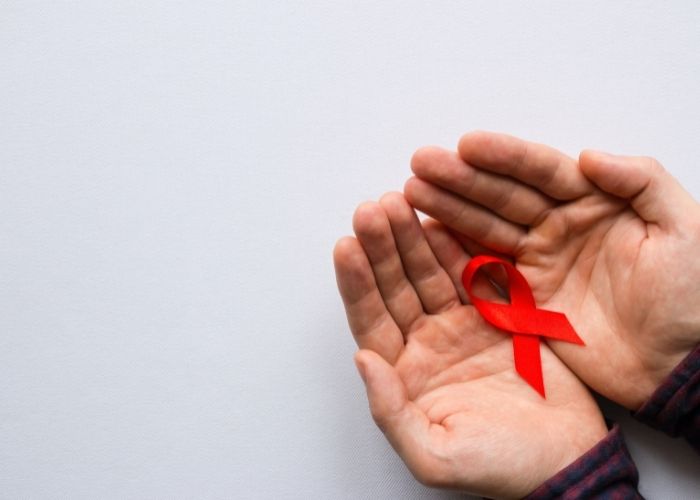MADRID – December 1 is #WorldAIDSDay and a promising study in this area is currently underway in Spain and 7 other countries around the world. 250 Spaniards are taking part in clinical trials for a drug that protects against HIV transmission.
In the midst of the corona pandemic, you would almost forget that there are other diseases in the world. Diseases for which a well-functioning medicine has not always been developed and which cannot yet be cured. AIDS is a good example of this. On December 1, it is World AIDS Day. Furthermore, the Spanish news site RTVE.es writes about a new international investigation that is also running in Spain.
Vaccination protects against HIV transmission
In this case, it concerns the study ‘Mosaic’, where clinical trials are currently being conducted. Therefore, the study´s aim is to determine whether a series of vaccinations offer protection against the transmission of HIV. Consequently, this is the virus that can ultimately lead to Aids. Furthermore, the vaccine being tested was developed by the American Johnson & Johnson. They also developed Janssen’s corona vaccine last year.
RTVE.es spoke to some of the participants and interviewed the head of Infectious Diseases of the Fundación Jiménez Díaz in Madrid. This is one of the six Spanish centres participating in the trials. According to participants and the doctors involved, the preliminary results are “encouraging”. Furthermore, there is “a fair amount of confidence that these trials can lead to a successful vaccine.”
A long way to go before final conclusion
Despite the promising interim results, there is still a long way to go: The study started on February 18, 2020, but was temporarily suspended a month later due to the corona pandemic. Then, the investigation continued on June 1. It includes a 12-month vaccination period after which participants are followed for at least 18 months after the fourth dose. Mosaic’s website states that the entire process can take about four years and that the doctors and authorities can start the evaluations and the final conclusions at the end of 2023 or early 2024.
As mentioned, Spain is participating with 250 participants from six health centres. The same survey is being conducted in Brazil, Argentina, Mexico, Peru, Italy, Poland, and the United States. A total of 3,800 people are taking part in the study.
How is the research progressing in Spain and other countries?
The participants who wanted to participate had to undergo a strict selection procedure: They are men (cisgender and transsexual) between the ages of 18 and 60 who are sexually active with gay men or transsexuals. They must also not have been infected with HIV beforehand.
This target group was deliberately chosen because these people are most at risk of an HIV infection. For example, figures from the INE show that 80.7 percent of HIV-related deaths in Spain in 2020 were male. Half of the participants will receive the actual vaccine and the other half will receive a placebo.
What are the figures for Aids and HIV in Spain?
Although the number of deaths from AIDS is decreasing every year, 414 people still died from the disease in 2019. In the same year, 3,500 people were newly diagnosed with HIV, a figure that has remained virtually stable for the past ten years. According to official statistics, nearly 152,000 people in Spain are currently living with HIV.


